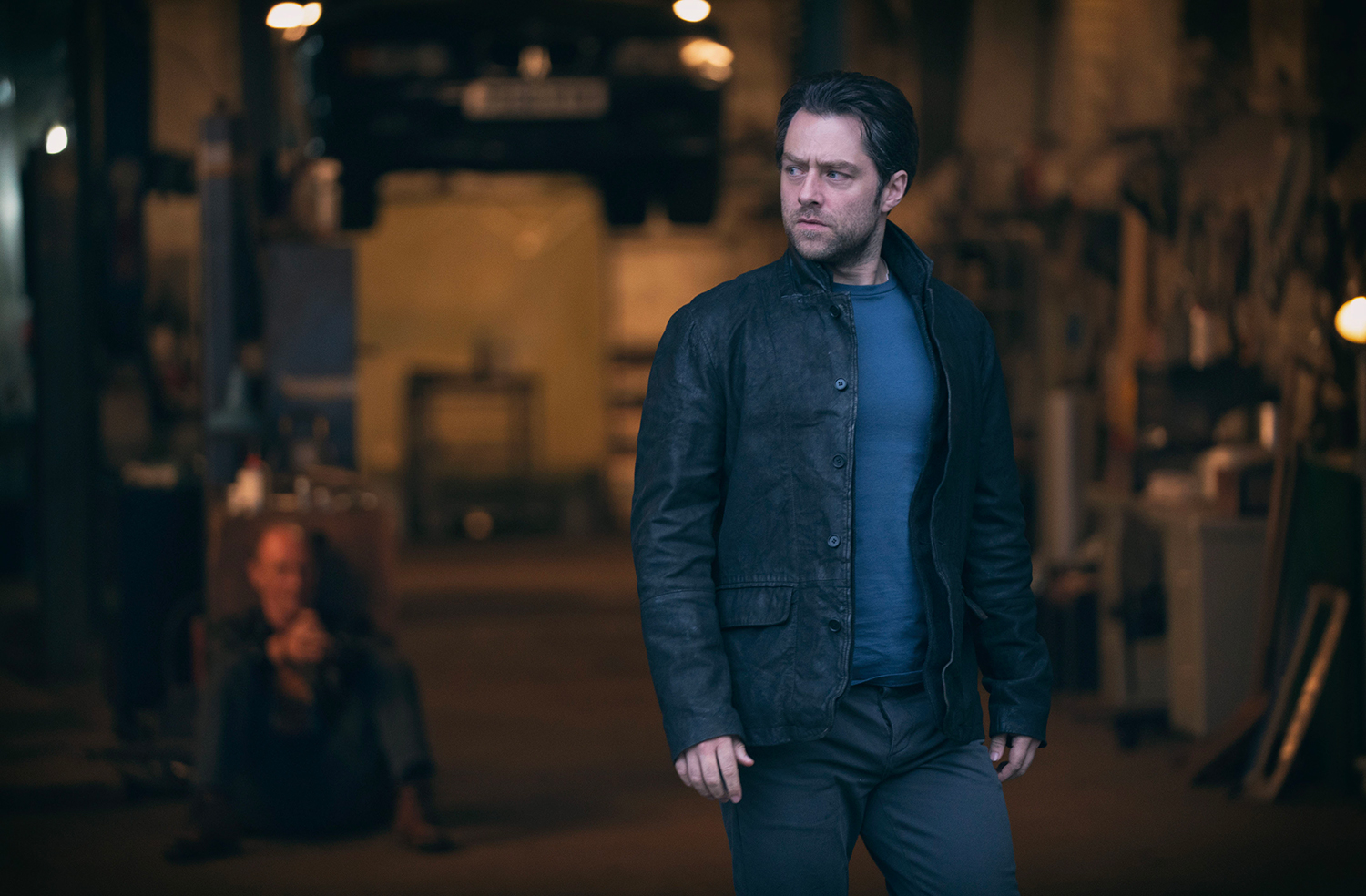Imagine a new series of Morse in which the real-ale-quaffing, jag-driving opera buff is turned into a speed-snorting mod on a pimped up Lambretta. Or – this one I’d actually like to see – jeune Poirot, featuring a clean-shaven habitué of fin-de-siècle Brussels absinthe dives. This may give you an inkling as to how upset one or two Rebus fans are about the Edinburgh detective’s latest TV incarnation.
Confusingly titled Rebus – as opposed to, say, Punk Rebus or Wee Rebussie – the series depicts a protagonist quite a bit younger than his former TV incarnations, grumpy, dishevelled Ken Stott and a mite-too-smooth John Hannah. Still only at the detective-sergeant stage of his career, he is a lot more aggressive – like maybe Begbie from Trainspotting would be in the unlikely event he ever joined the police – with a hair-trigger temper and a drinking problem.
This isn’t so much a faithful adaptation as a controlled demolition
This isn’t so much a faithful adaptation of Ian Rankin’s crime novels as a controlled demolition. I say ‘controlled’ because Rankin himself gave screenwriter Gregory Burke, author of the hit play Black Watch (based on interviews with Iraq war veterans), carte blanche to reimagine Rebus as he wished. And apparently he’s very happy with the result.
I don’t blame him, for this Rebus is the kind of TV detective they just don’t make any more. He’s a bloke. He likes pubs. He’s guiltily sleeping with the wife of his best mate (and mentor and former colleague, who was crippled in a run-in with a gangland boss). And even though he isn’t obviously buff and could look almost cherubic if he bothered to shave, it turns out that he is properly handy with his fists.
Richard Rankin (no relation of Ian’s) is so perfectly believable in the role that you never tire of watching him and keep rooting for him even when he’s being a complete and utter idiot.
Quite how such a piece of unreconstructed machismo made it on to the BBC, I can only speculate. I’m guessing that because Burke is working-class Scottish and obviously fluent in local dialects this was thought sufficiently ‘diverse’ as not to require the jemmying in of various ethnic, trans and disabled characters. Even though it’s set more or less in the present, this gives it a period-drama throwback feel: the dialogue, the players and the look owe more to the era of, say, The Sweeney – or even Get Carter – than they do to your typical contemporary series about plucky, empowered women being simply amazing.
Even the plot clichés bring a nostalgic tear to the eyes: there’s the pretty ex-wife Rhona (Amy Manson) with her new, nice but dull, much richer bloke Lockie (Nick Rhys); the young daughter (it’s never a son, you’ll notice; always a girl) caught between the two parents and their very different lifestyles; there’s the ex-squaddie with the tin box in the lock-up containing his beret, his medals and (well I never!) his old service handgun; and – but of course – there’s the very reluctantly accepted new colleague, a fast-tracked graduate fresh off the detective training course. And just take a guess at what she read at university? Sociology, that’s what.
But the clichés – as cosily reassuring in their way as an episode of Midsomer Murders – don’t matter one bit, for it’s all in the handling and the telling. The half-poignant, half-disturbing scene where Rebus boasts to his therapist about his ‘breakthrough’ (he no longer instantly wants to kill his wife’s new man as soon as he sees him); the sudden outbreak of very realistic ultraviolence in the hospital; the brutal retribution meted out by a sadistic gangster to his minions on a rough housing estate: sure, we’ve seen this sort of thing many times before, but rarely with such watchable conviction.
It’s well scripted, too. Mostly it’s dour, laconic and sardonic. But just occasionally Burke will throw in a gem, such as in the scene where Rebus’s partner DC Siobhan Clarke (Lucie Shorthouse) is wheezing her way up one of Edinburgh’s innumerable hills. Rebus rebukes her: ‘You’re in the city of John Knox. Life’s supposed to be difficult.’ And I couldn’t resist the cruel, class-war sneering with which Burke imbues a line he gives to Lockie, when he’s consulting Rhona as to whether she’d mind if he set up a trust fund for her daughter: ‘I know a million pounds isn’t much these days but it’s a start…’








Comments